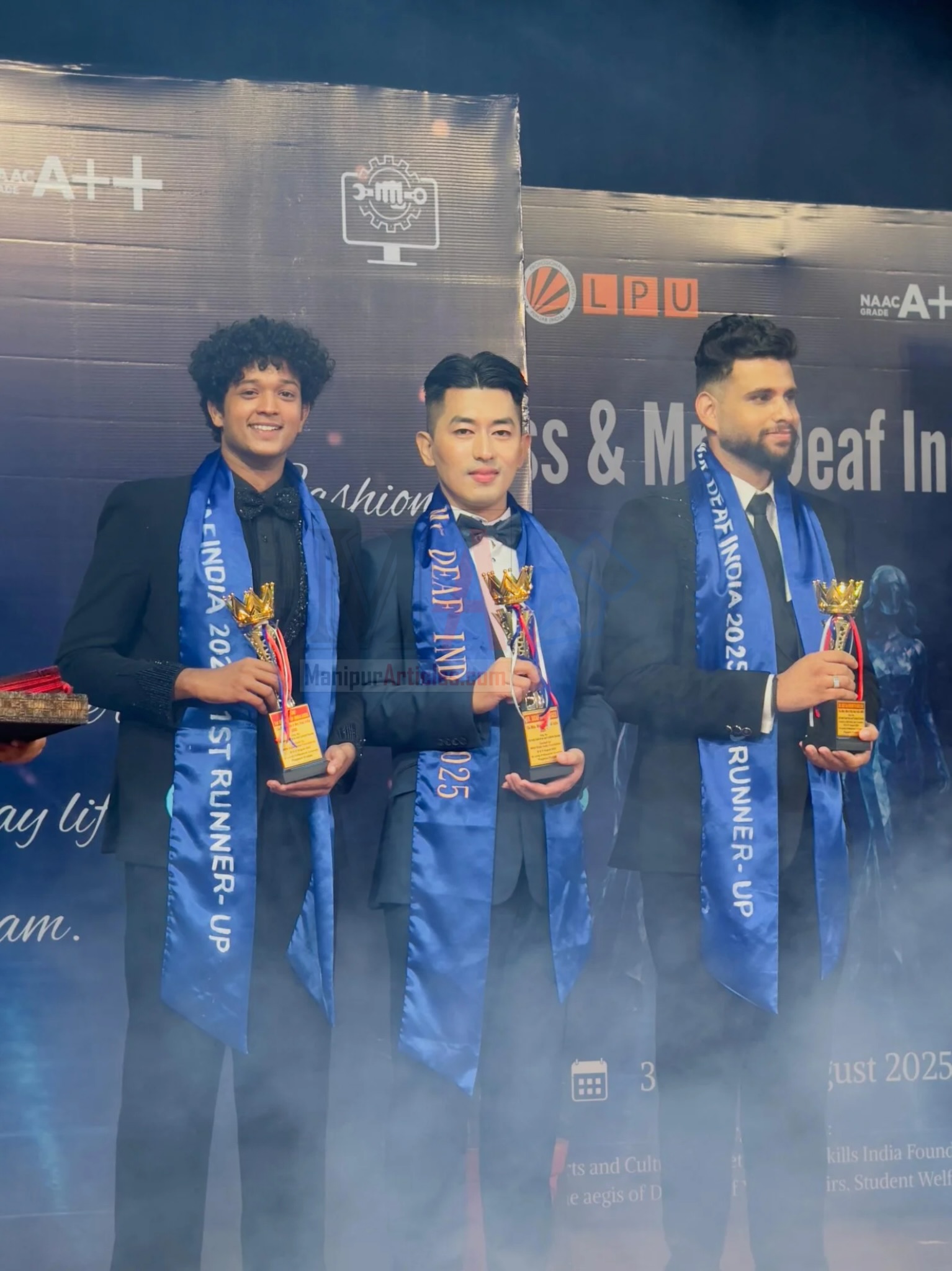Manipur Youth Veihriilou Lanah Crowned Mr Deaf India 2025 — A Triumph of Talent, Representation & Pride
Veihriilou Lanah, a young man from Manipur, was crowned Mr Deaf India 2025 at the 12th Miss & Mr Deaf India contest held recently — a national stage that spotlighted Deaf talent from across India and brought pride to his home state. The event was hosted at Lovely Professional University (LPU) in Punjab, and media and local communities celebrated his victory online and in local posts.
What happened — the facts, clean and clear
At the 12th Miss & Mr Deaf India contest — a national event that brings together Deaf participants from across the country — Veihriilou Lanah was crowned Mr Deaf India 2025. The contest took place at Lovely Professional University in Punjab, and the event included multiple categories and winners (including the Miss Deaf India title). The news of Veihriilou’s achievement circulated quickly on regional media and local social platforms, with family, friends, and residents from his district celebrating the victory.
FAQs
Q1: Who exactly is Veihriilou Lanah and where is he from?
A1: Veihriilou Lanah is the young man from Manipur who won the Mr Deaf India 2025 title. Local posts indicate he hails from Khamson (Khamsom) village in Senapati district, and his victory drew congratulations across social media and local channels.
Q2: Where and when was the contest held?
A2: The national Miss & Mr Deaf India 2025 contest took place at Lovely Professional University (LPU) in Punjab; the event was livestreamed and covered by organizers and local media.
Q3: Is this the first time someone from the Northeast has won a title at this contest?
A3: The Northeast has had representation at national Deaf pageants before, but each win is special. In 2025, both regional winners — including Miss Deaf India (reported from Assam) and Mr Deaf India (Veihriilou from Manipur) — highlight strong Northeast participation and success.
Q4: What can this victory do for Deaf youth back home?
A4: It raises visibility, inspires local youth, and can attract support for training, resources, and advocacy. Titleholders often get opportunities to speak, network, and push for more inclusive policies. Community and institutional follow-up are crucial to converting a win into lasting programs.
Q5: How can readers support Deaf inclusion after reading this story?
A5: Share the story, support local Deaf organizations, ask schools to adopt sign-language resources, volunteer for mentorship, or sponsor training and access-related initiatives. Even small acts — amplifying the win, donating to an NGO, or encouraging a local school — make a difference.


